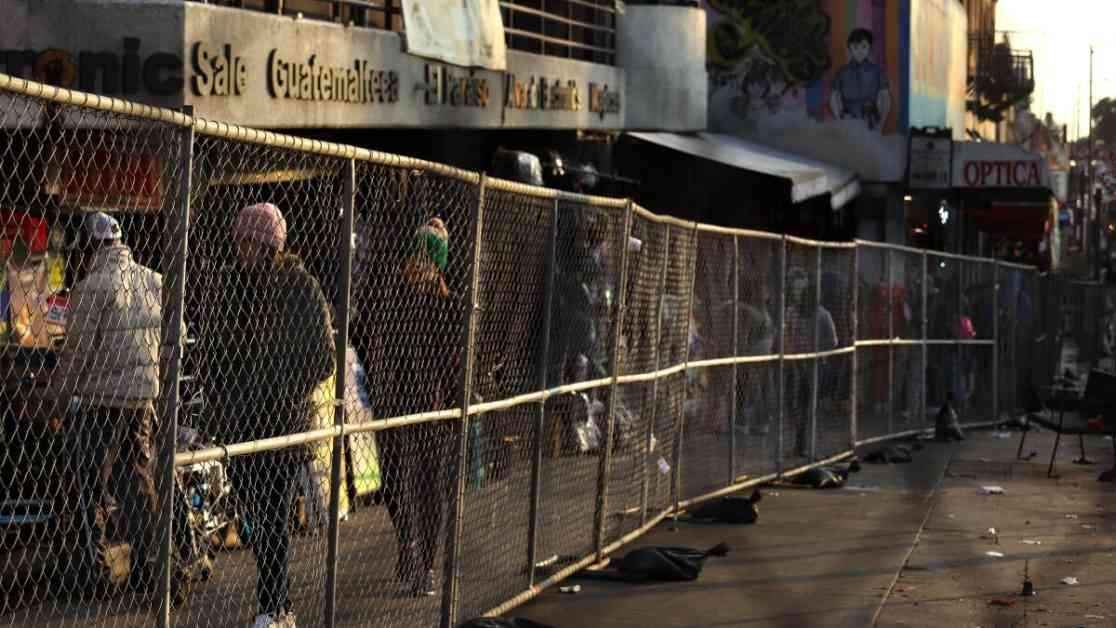MacArthur Park: A City’s Transformation Unveiled
In a recent address to the public, Los Angeles Mayor Karen Bass shed light on the remarkable transformation of MacArthur Park, a once-troubled public square in Westlake. From gang shootings to homelessness, rampant drug use, and an “open air market” of stolen goods, the park had long been plagued by a myriad of issues that cast a shadow over the community. However, in a surprising turn of events, Mayor Bass revealed that significant changes have taken place in recent months, reflecting a newfound sense of hope and progress in the area.
Renewed Efforts and Collaborative Action
Mayor Bass highlighted a series of initiatives that have been instrumental in reshaping the landscape of MacArthur Park. Increased police foot patrols, mental health outreach programs, and the deployment of specialized teams to assist individuals in distress have played a pivotal role in curbing illegal activities and addressing the root causes of social challenges. The installation of fencing along Alvarado Street, a hotspot for the sale of stolen goods, marks a strategic move to disrupt criminal enterprises operating in the vicinity.
The crackdown on illicit activities extended beyond street vendors to a broader network of organized crime. A recent police operation led to the arrest of a woman suspected of receiving stolen property from various retail stores. The recovery of more than $350,000 worth of merchandise linked to organized retail theft underscores the magnitude of the illicit operations that have plagued the area. Los Angeles Police Chief Jim McDonnell emphasized the city’s commitment to sustaining these crime reduction efforts and fostering a safer environment for residents and businesses.
Challenges and Progress Ahead
Despite the concerted efforts to address the underlying issues at MacArthur Park, challenges persist on multiple fronts. Captain Manny Chavez of the LAPD’s Rampart Patrol acknowledged the complexities surrounding illegal street vending and the delicate balance between enforcement and community engagement. While some progress has been made in reducing crime rates, concerns linger among local stakeholders who question the efficacy of the city’s initiatives.
Mayor Bass likened the ongoing efforts to a game of “whack-a-mole,” acknowledging the persistent nature of social challenges that require a multifaceted approach. While crime statistics show a noticeable decline in property crimes, the mayor emphasized the importance of continued support for individuals grappling with addiction and homelessness. The mobilization of outreach teams equipped with naloxone, a life-saving drug for opioid overdoses, underscores the city’s commitment to addressing public health issues and providing vital resources to marginalized populations.
City Councilmember Eunisses Hernandez echoed the sentiment of collective action and community engagement in tackling the complex issues plaguing MacArthur Park. From de-escalating gang tensions to providing essential services such as restrooms, showers, and access to food, Hernandez underscored the importance of holistic solutions that address the diverse needs of the community. As the city strives to extinguish the metaphorical fires that have engulfed MacArthur Park, a spirit of collaboration and resilience emerges as a beacon of hope for a brighter future.
In conclusion, the transformation of MacArthur Park stands as a testament to the power of collective action, resilience, and community engagement in overcoming adversity. As the city navigates the complexities of urban revitalization and social reform, the journey toward a safer, more inclusive public space continues to unfold. With unwavering determination and a shared commitment to progress, the residents of Westlake and beyond are poised to usher in a new era of vitality and renewal in the heart of Los Angeles.


